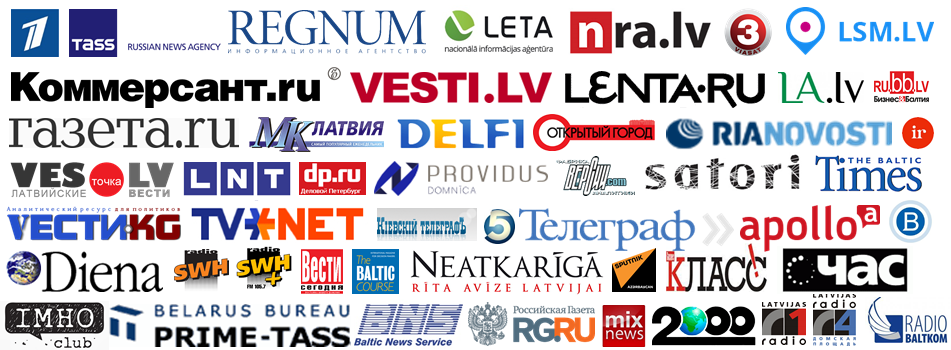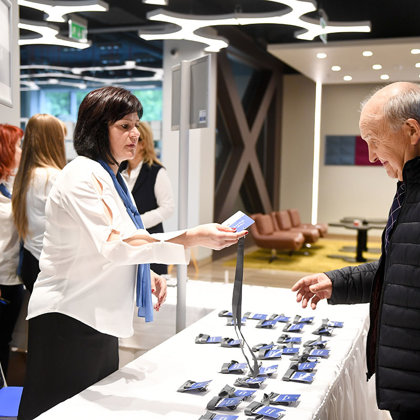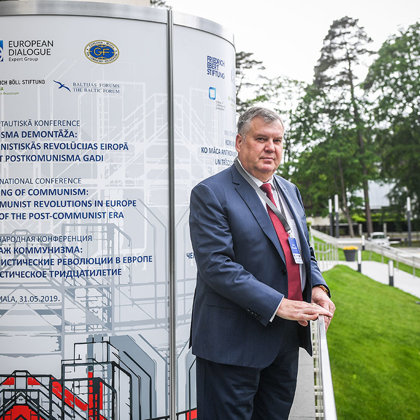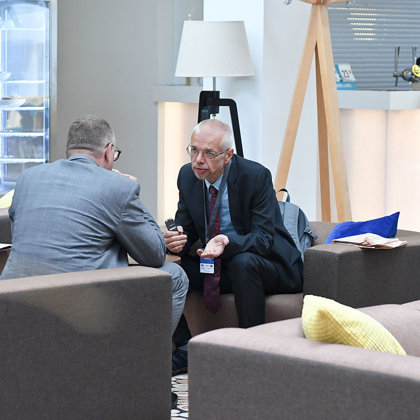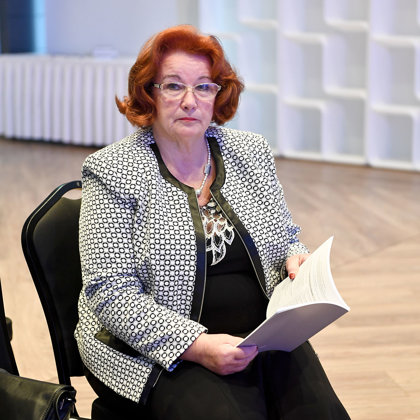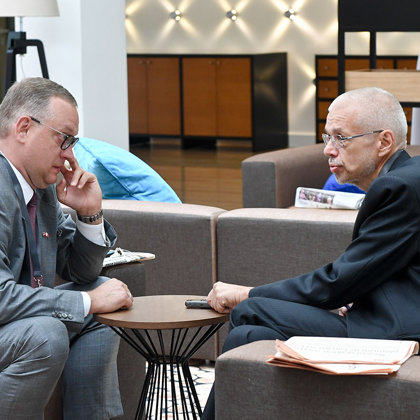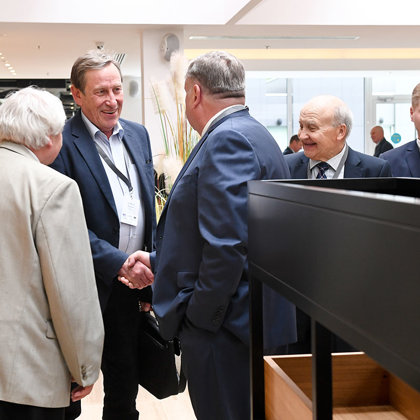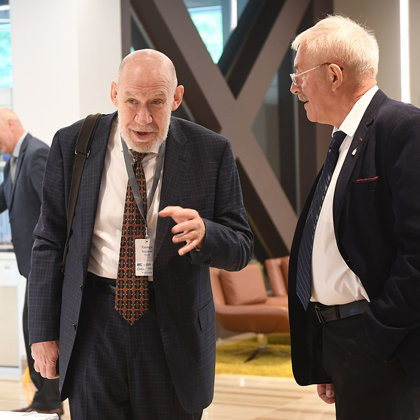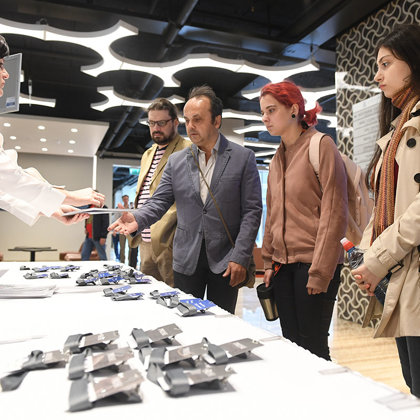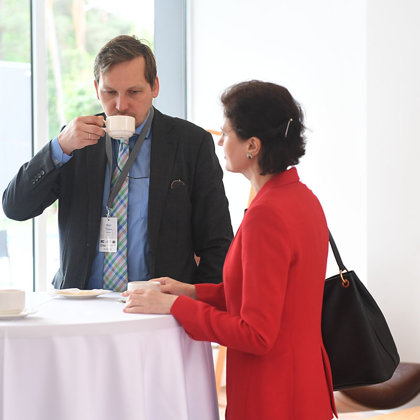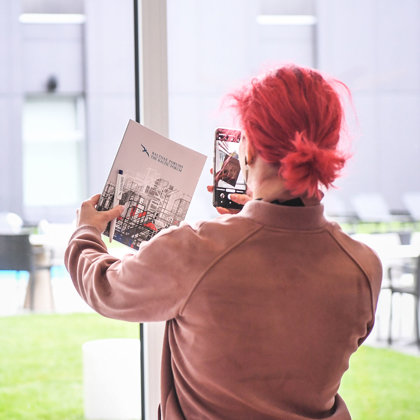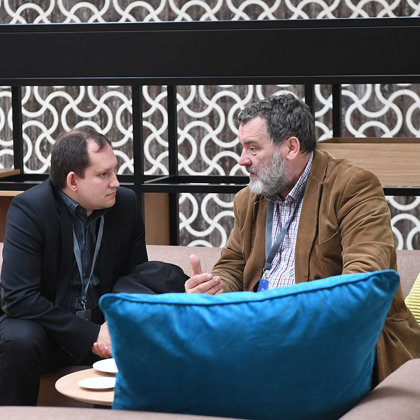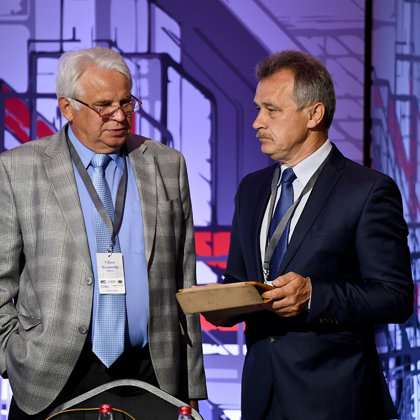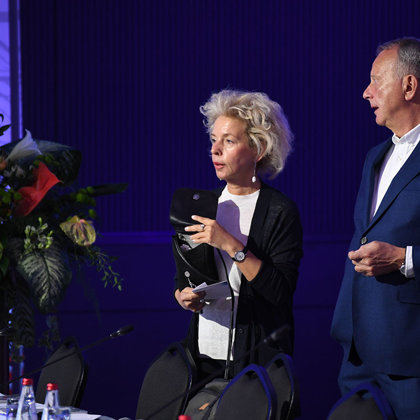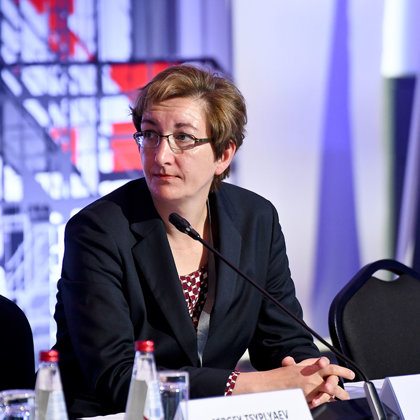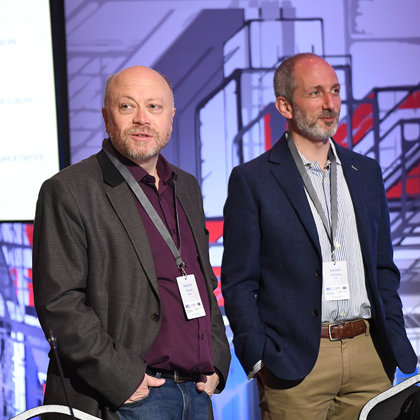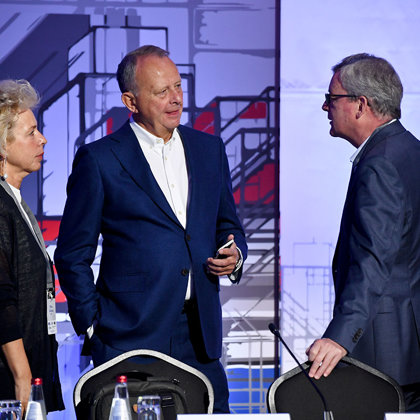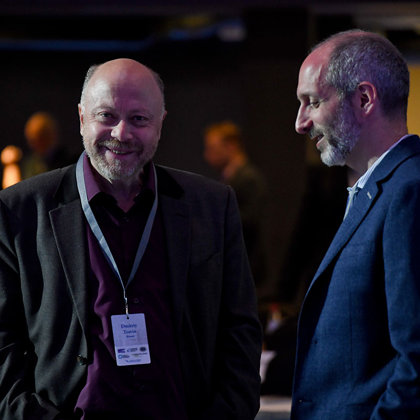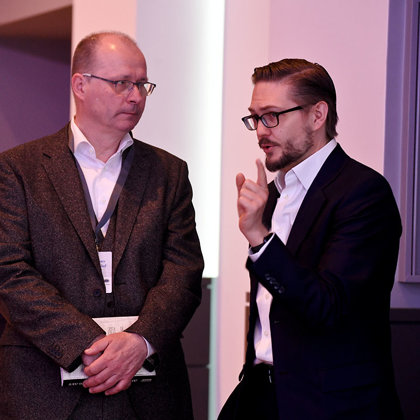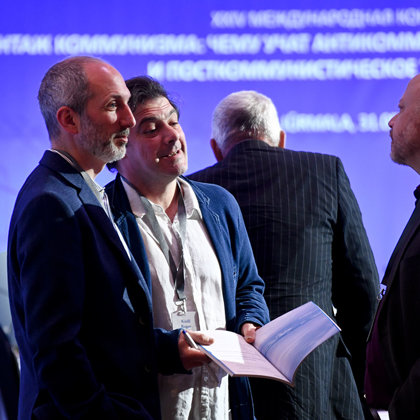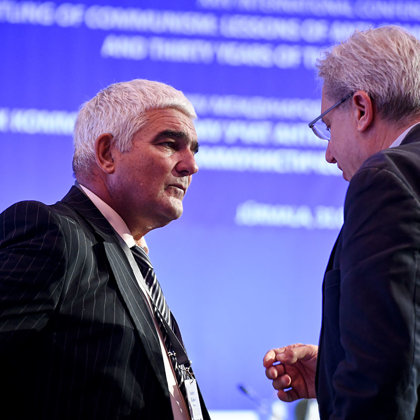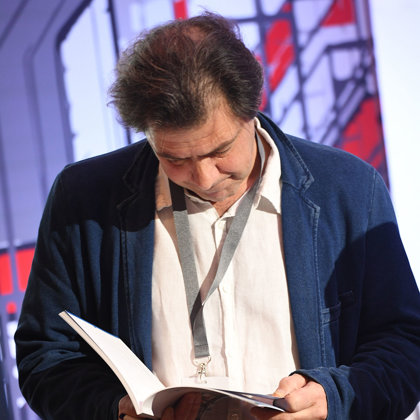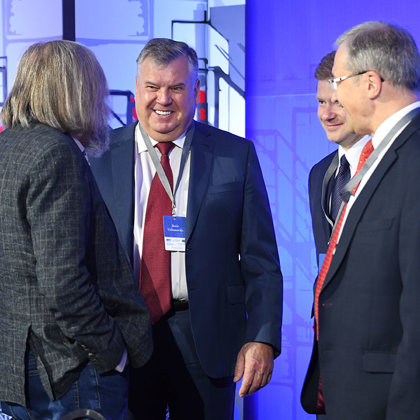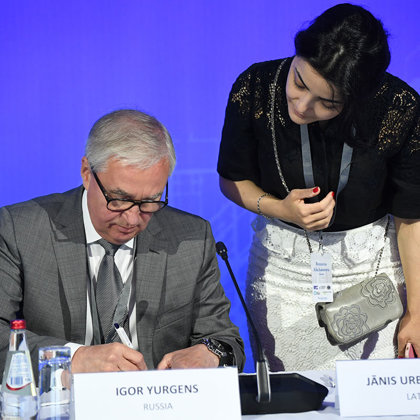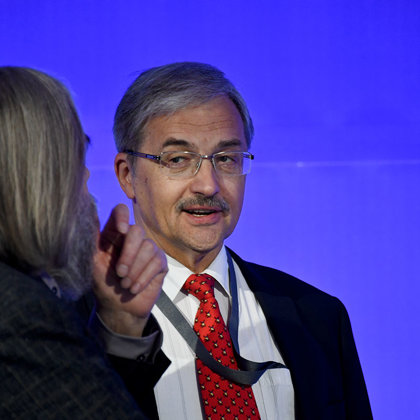Thirty years of the post-Soviet Europe
Start of the
project: January 2019 End of the project: December 2022
Project organized
by: European Dialogue Expert Group, International Foundation for
Socio-Economic and Political Studies (the Gorbachev Foundation) with the
support of Friedrich Ebert and Heinrich Boell Stiftungs
Relevance of the
project: Not so long ago our recent history has become a target for
aggressive political manipulation, this is why the project is focused on
reimagining the success and failures associated with transition to the
post-Communist society in the context of unresolved problems of modernization.
Project audience:
The Project is addressed primarily to the civic society and youth of Russia,
the former Soviet Union and the EU. It focuses on non-governmental
organizations, parties, and trade unions. On the media, teachers and students,
young scientists – that is, all those who the future of our countries and
societies depends on, and therefore – those who should know well the recent
history and its diverse lessons.
Objectives:
Within the framework of this project, we will organize a
string of events to commemorate establishment of the post-Soviet order in
Central and Eastern Europe, Russia, and Central Eurasia. Bringing together
experts from the academic world and politics, we will build a comprehensive
picture of transformational processes that took place within these 30 years and
look at the key lessons to be learned by Europe, Russia, and CIS countries.
The upcoming years will bring several anniversaries of major
historical events which took place in Central Europe and former USSR in the end
of XX century and to a great extent set the boundaries, shaped political
regimes and state governance institutions, set the key to social structure and
economic development in present-day Europe and in the postSoviet domain.
In 2019 we
celebrate the 30th anniversary since the Soviet bloc fell apart, a change that
has shaped modern Europe. Political transformation of the Soviet Union started
in 1989 opening a way for the first alternative elections in the Soviet Union:
election of delegates to the Congress of People’s Deputies. It was the peak of
perestroika, Gorbachev’s reforms and the culmination of peaceful dismantling of
the communist system.
The year of 2020
is the 30th anniversary of the former USSR republics holding alternative
elections and adopting declarations of sovereignty. These events have laid the
foundation of their independence, set the key to their policies and shaped
their political regimes. They have also predetermined a number of nationalistic
or territorial disputes on eastern borders of Europe and many of these
conflicts remain unresolved. Finally, 2021 is the 30th anniversary of the USSR
demise. Peaceful disintegration of the Soviet empire has become the event that
dictated the character of present-day Eurasia and set all former Soviet
republics on a development course. We focus on two aspects of this process: one
is peaceful dismantling of the empire and another is a crushing economic,
political, and social care burden that was left after it with Russo-Ukrainian
crisis early in 2010 being an excellent reminder of this burden.
In 2022, there
will be 30 years after the start of economic reforms in Russia and other former
USSR republics that were devised to put these nations on the market economy
tracks. This anniversary makes us look into similarities of market economy
development in Eastern European countries and in the former USSR republics.
Under the project, we plan to hold several international expert sessions, which will pave the way
to four social science conferences devoted to the afore-mentioned
anniversaries and publish joint monographs following these conferences. Each
anniversary has its own theme and focus, which determines the topic of the
conference related to it.
A conference will
comprise a historical session, which will focus on the events that happened
three decades ago, and sessions focusing on various aspects of 30 post-Soviet
years and lessons learnt both at present and for the future. Participants will
include academics from different countries as well as public leaders and politicians
both who took part in those events and those who represent current political
generation. These conferences will help look into the background of diverging
political courses of post-Soviet countries across Eurasia from Eastern Europe
to Central Asia and South Caucuses as well as assess the progress that these
countries have achieved and aspirations they currently have.
Preliminary
Schedule: Four international conferences and four joint monographs
following them (the titles are
preliminary and may be subject to change):
- Autumn 2019, Conference “1989 - 2019. Liberation: democratization and dismantling Communism in the USSR and Eastern European countries” Major historical events that happened 30 years ago in 1989 to a large extent determined the way Europe looks today. It was the year when Mikhail Gorbachev started his political reform.
- Autumn 2020, Conference “1990 - 2020. Sovereignty. The process of redefining nations and states in post-Soviet domain”
- end of 2020 is the deadline for publishing a joint monograph based on materials of the 1st conference.
- Autumn of 2021 Conference “1991 - 2021. Demise of the empire. 30 years of post-Soviet transformations and lessons learnt”
- end of 2021 is the deadline for publishing a joint monograph based on materials of the 2nd conference.
- Autumn of 2022 Conference “1992 - 2022. Market economy in post-Communist countries. Economic development in former socialist states”
- end of 2022 is the deadline for publishing a joint monograph based on materials of the 3rd conference.
- end of 2023 is the deadline for publishing a joint monograph based on materials of the 4th conference.
Participants.
Politicians, public figures, leading Russian and foreign experts in political
and social science, economy, history.
Program directors:
Kirill Rogov, Evgeny Gontmakher, Nikolay Petrov
Conferences and
seminars in 2019
Seminar I. May 31 – June 1, 2019, Yurmala, Latvia:
TOPIC: «Liberation:
democratization and dismantling Communism in the USSR and Eastern European
countries. 30 years after»
Major historical events which
happened 30 years ago in 1989 to a large extent determined the way Europe
looks today. It was the year when Michail Gorbachev started his political
reform, which resulted in holding alternative elections of delegates to the People’s
Deputies Congress for the first time since 1917 and fostered creation of
multi-party political systems. Unfolding democratization in the USSR encouraged
democratic movements and democratic revolutions in Central Europe in Hungary,
GDR, Czechoslovakia, and Romania. What
do these events look like today, 30 years after they took place? What lessons
do we learn from both these events and 30 years of post-Communist development?
Can traces of the Communist past still be seen in political and social order of
Eastern European countries? Has Europe finally become united? If no then has it
become any closer to being united?
Seminar 2: October 11, 2019, Berlin,
Germany:
TOPIC: «Social
heritage of the Communist times: values and preferences of people in post-Soviet
countries»
Final conference: December 9, 2019,
Moscow:
TOPIC: «A path to the united Europe: lessons of 3 post-Communist decades»
SUMMARY (.pdf)
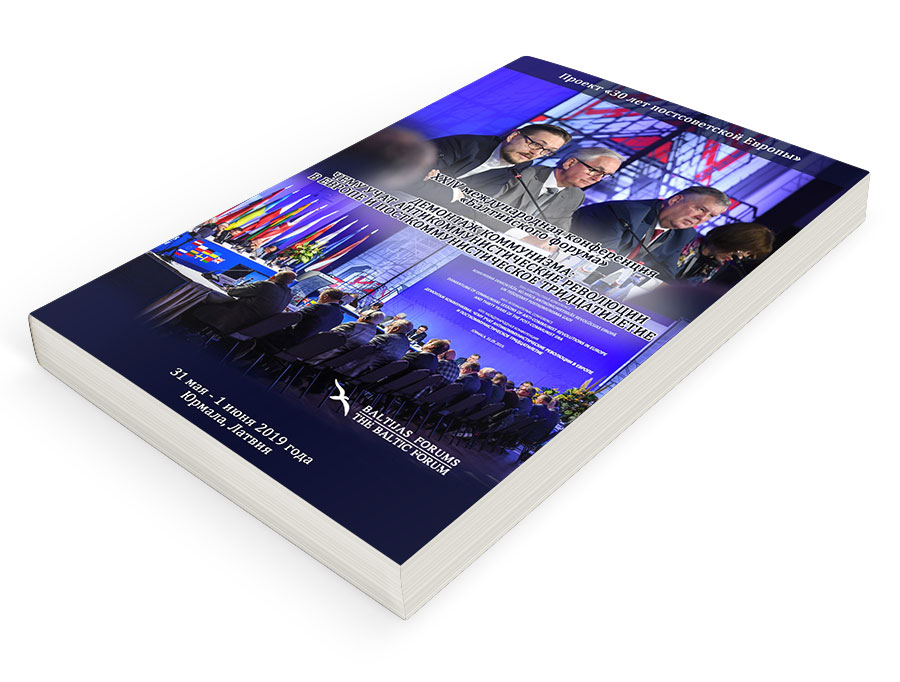
DIALOGI 20 GADU GARUMĀ (.pdf)
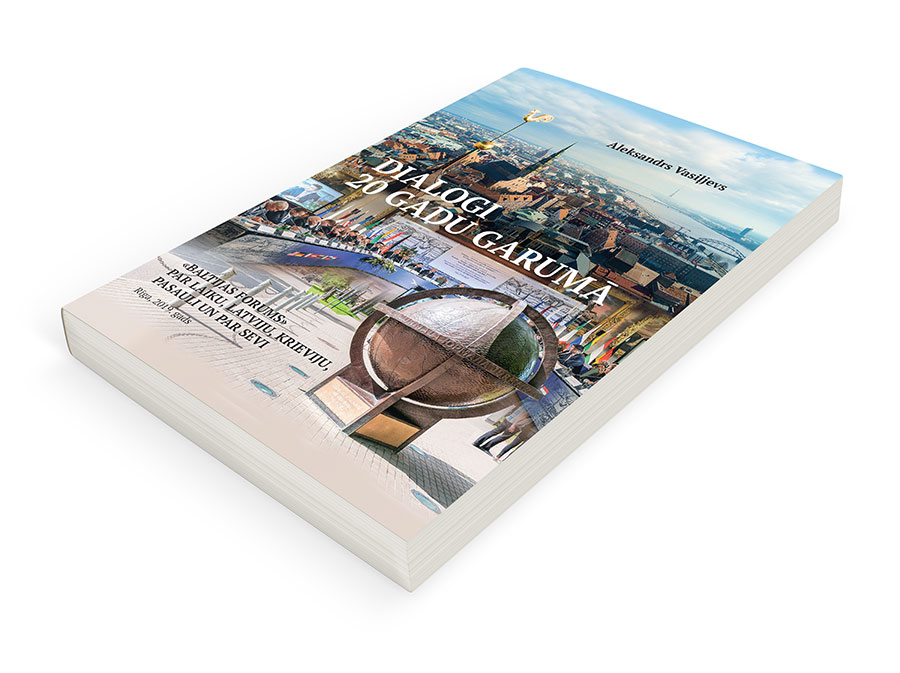
DISMANTLING OF COMMUNISM. LESSONS OF ANTI-COMMUNIST REVOLUTIONS IN EUROPE. THIRTY YEARS OF POST-COMMUNIST ERA
(May 31 - June 1, 2019)
Venue: Hotel Lielupe, Bulduru prospekts, 64/68, Jūrmala, Latvija
lielupe.semarahhotels.com
PROGRAM
May 31
08.30 – 09.00 Registration of participants
09.00 – 09.30 Opening remarks by: Igor Jurgens, European
Dialogue Expert Group, INSOR; Janis Urbanovics, The Baltic Sea Forum NGO; Peer
Teschendorf, Friedrich Ebert Foundation, Moscow Office
09.30 –11.30 Session 1. Expectations Drama: 1989 in perspective of the following 30
years
Questions for discussion: The year 1989 both in Central Europe and former USSR became a
culmination of hopes for peaceful and successful transfer from communist
dictatorship to liberal political and economic order. What are these
expectations today? Were they knowingly unreal? What were the main factors of
the disappointment?
Moderator: Igor Jurgens, European Dialogue Expert Group,
Institute of Contemporary Development
Impulse presentations:
Georgy Satarov – “INDEM” Foundation for Applied Political
Researches, Russia: Drama of
Post-Communist Transit as a Source of Rethinking the Transit
Maxim Trudoluybov – Kennan Institute, Russia: 1989 - Great Expectations: what people of
communist countries expected and didn’t get
Samuel Greene – Russian Institute, King’s College, London: “Homo PostSovieticus”: what former soviet
people learned for past 30 years?
Andrey Melvil – National Research University “Higher School
of Economics”, Russia: “Structures” and
“Actors”: what common transit models don’t explain?
Discussion
11:30 – 12:00 Coffee break
12:00 – 14:00 Session 2. Dismantling
of Communism: models, ideologies and factors
Questions for discussion: What powers, factors and ideologies played a key role in the process of
dismantling Communism in different countries of Central Europe and countries of
former USSR. How it reflected on further evolution vector? Nationalist and
democratic components of anti-communism: their correlation and consequences?
Moderator: Vladimir Ryzhkov, National Research University
“Higher School of Economics”, Russia
Impulse presentations:
Klara Geywitz – Landtag of Brandenburg, Member of Executive
committee of Social Democratic Party of Germany: Is there Still a Wall Between West and East Germany? The Long Shadow of
a Divided Germany.
Andrey Ryabov – Journal “The World Economy and International
Relations”: Features of Intersystem
Transformations in the Post-Soviet Space
Adam Michnik – Polish newspaper “Gazeta Wyborcza”: Nationalism and Democracy: a view from
Poland
Balint Magyar – Central European University, Hungary: Trajectories of Post-Communist Development
in countries of Central Europe Discussion
14.00 – 15.00 Lunch
break
15.00 – 17.30 Session 3. 1989
in Soviet History: the experience of Gorbachev's democratization and its
significance for modern Russia
Questions for discussion: What are the reasons for the failure of Gorbachev's plan for the
gradual democratization of the Soviet system? What determined the turn to the
systemic crisis of Soviet power? How institutional and political experience of
the perestroika influenced the vector of political development in Russia and
other Post-Soviet countries?
Moderator: Olga Zdravomyslova, International Foundation for
Socio-Economic and Political Studies (the Gorbachev Foundation), Russia
Impulse presentations:
Kirill Rogov – “Liberal Mission” Foundation: 1989 and Post-Communist Trajectories of
Eurasian Area
Nikolay Petrov – National Research University “Higher School
of Economics”, Russia: The First Congress
of People’s Deputies in the Political History of the USSR/Russia
Dmitriy Travin – European University in St. Petersburg: Economic Reform and Democratization during
Perestroika
Nikolay Mitrokhin – Research Center for East European
Studies, University of Bremen, Germany: Late
Soviet Nationalism: its origination in politics and 30 years of transformation
Sergey Tsyplyaev – The Russian Presidential Academy of
National Economy and Public Administration, Russia: Perestroika: from over expectations to over disappointments
Discussion
Dinner
June 1
09.00 – 12.30 Session 4. (with a coffee break). 30 Years after Communism was Over. Vectors
of Post-Communism Development.
Question for discussion: 30
years of post-communism: lessons learned? Why were anti-communist revolutions
predominantly velvet, and the real decommunization was so long and difficult?
Ar e th e current problems of political development in countries of Central and
Eastern Europe and Russia connected with their communist past?
Moderator: Evgeny Gontmakher, Coordinating Board of the
"European Dialogue" Expert Group, Russia
First day moderators’ presentations: Igor Yurgens, Vladimir
Ryzhkov, Olga Zdravomyslova Impulse presentations: Grigory Yavlinskiy, Vladimir
Ryzhkov, Viktor Karneenka, Michail Pogrebinskiy, Ralf Fuecks, Arkady Dubnov
Discussion
List of Participants
- Marieluise Beck Member of the Bundestag from the party Alliance 90/Greens (1994 – 2017), Germany
- Vera Dubina Friedrich Ebert Foundation in the Russian Federation, Russia
- Arkady Dubnov Moscow Carnegie Center, Russia
- Vitaly Dymarskiy Radio station "Echo of Petersburg", Russia
- Alexander Dynkin IMEMO, RAS, Russia
- Ralph Fuecks, Center for Liberal Modernity, Germany
- Klara Geywitz Landtag Brandenburg, Executive Committee of the Social democratic party of Germany, Germany
- Evgeny Gontmakher Coordinating Board of the "European Dialogue" Expert Group, Russia
- Samuel Greene Russian Institute, London King's College, United Kingdom
- Mikhail Gusman First Deputy Director General TASS Information Agency
- Viktor Karneenka Deputy of the Supreme Soviet of the USSR in 1989-1991, Belarus
- John Lough Chatham House, United Kingdom
- Anatoly Lebedko Center "European dialogue", Belarus
- Maria Leibholz "Dynasty" Foundation, Russia
- Balint Magyar Central European University, Hungary
- Andrey Melvil National Research University “Higher School of Economics”, Russia
- Nikolai Mitrokhin Centre for Eastern European Studies, University of Bremen, Germany
- Adam Michnik "Gazeta Wyborcza", Poland
- Justas Vincas Paleckis Deputy Minister of Foreign Affairs in 2002-2004, Lithuania
- Tatyana Parkhalina Institute of Scientific Information on Social Sciences, RAS, Russia
- Andrey Petrov "European Dialogue” Expert Group, Russia
- Nikolai Petrov National Research University “Higher School of Economics”, Russia
- Mikhail Pogrebinsky Kyiv Center for Political Studies and Conflict Resolution, Ukraine
- Sergey Potapkin Agora Strategy Group, Latvia
- Kirill Rogov "Liberal Mission" Foundation, Russia
- Vladimir Ryzhkov National Research University “Higher School of Economics”, Russia
- Andrey Ryabov Journal “World economy and international relations”, Russia
- Georgy Satarov INDEM Foundation for Applied Political Research, Russia
- Vladas Sirutavicius Institute for International Relations and Political Science, Vilnius University, Lithuania
- Michael Sohlman Executive Director, Nobel Foundation 1992-2011, Sweden
- Elena Telegina National Research University “Higher School of Economics”, Russia
- Peer Teschendorf Friedrich Ebert Foundation in the Russian Federation, Germany
- Anatoly Torkunov MGIMO(U), MFA, Russia
- Dmitry Travin European University in St. Petersburg, Russia
- Maxim Trudolyubov Kennan Institute, Russia
- Sergey Tsyplyaev Russian Presidential Academy of National Economy and Public Administration, Russia
- Andreas Umland Institute for Euro-Atlantic Cooperation, Germany
- Janis Urbanovics NGO "Baltic forum", Latvia
- Ivan Polyakov General director of the Interstate Corporation for Development, Russia
- Johannes Voswinkel Heinrich Böll Foundation in Russia, Germany
- Igor Yurgens "European Dialogue” Expert Group, the Institute of contemporary development, Russia
- Grigory Yavlinsky Political party "Yabloko", Russia
- Olga Zdravomyslova International Foundation for Socio-Economic and Political Studies (the Gorbachev Foundation), Russia
- Dmitry Zimin “Dynasty” Foundation, Russia
Our partners
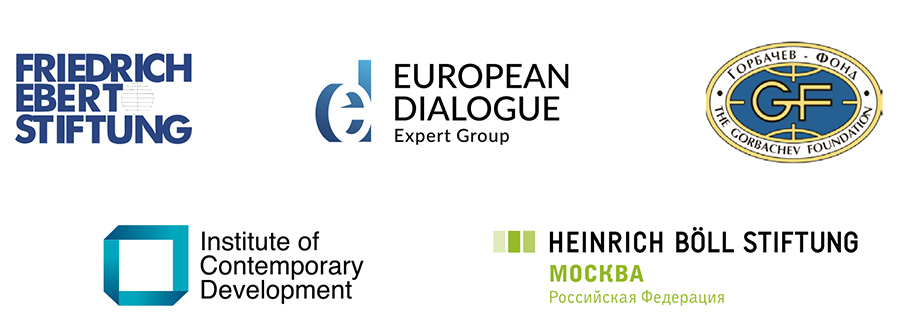
Media about us:
